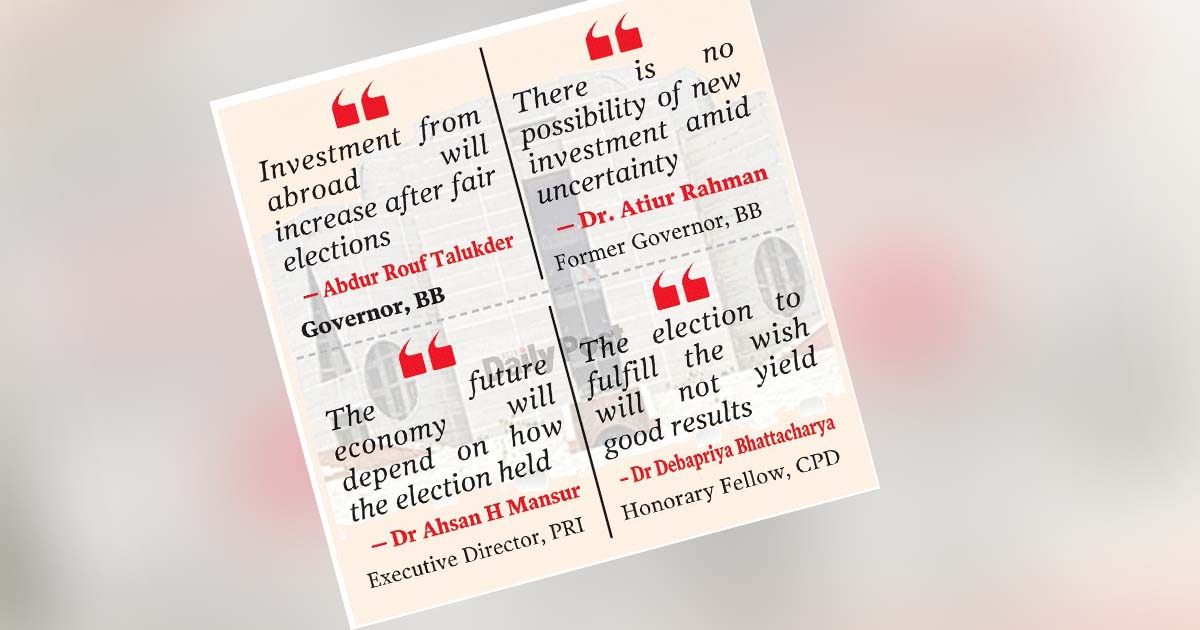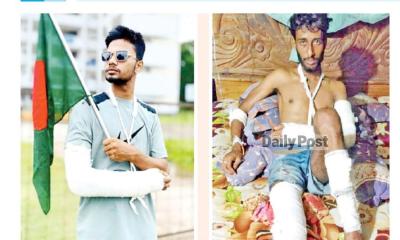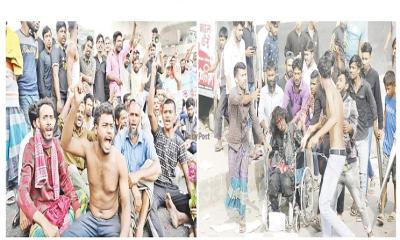The country's economy is in a multi-faceted crisis, including the continuous decline of the reserve, the record decline of the domestic currency, high inflation, acute liquidity crisis and instability in the bank sector due to bad loans and capital shortages. No major reforms are being undertaken in the run-up to the parliamentary elections. The uncertainty over the election process has led to uncertainty in foreign investment. Measures taken to curb inflation and dollar crisis have had a negative impact on GDP growth. There are fears of a large number of job losses. The export sector is under international scrutiny. In such a situation, the only way to resolve all crises is through fair and credible elections.
National elections have become a key issue in overcoming the ongoing economic crisis. Without a stable government structure, there is instability in foreign relations. At the same time, there is a political conflict within the country. As a result, it is difficult to get foreign investment and loans. There is a big problem in the import-export trade. Economists and industry experts believed that the ongoing volatility will not last long for the economy. Therefore, creating a stable environment of domestic and international relations through fair elections is now the main cure for the economy.
Recently, Bangladesh Bank (BB) Governor Abdur Rouf Talukder said that if the confidence in Bangladesh increases after the election, investment will come from abroad and foreign loan money will be released. In addition, if the US interest rate falls in the coming days, Bangladesh's short-term credit and trade credit will increase and the bounce back will start in the economy. Then, in addition to increasing the remittance inflow, exporters will bring export income from abroad faster.
Earlier, in a discussion at the Economic Reporters Forum (ERF) to address the ongoing economic crisis, the governor said the country's foreign exchange reserves have fallen to the bottom. There is no chance of going down anymore. In my 36 years of service, I have never seen such an economic crisis. He said positive changes in the economy will begin after the elections.
Regarding the crisis, former Governor of BB Dr Atiur Rahman said that when there is political instability and uncertainty, there is a kind of culture of fear. This culture of fear has had a huge impact on the informal sector. 80 to 85 percent of the country's economic activity flows into the informal sector. In other words, day-to-day people are involved in these activities. Today, it is difficult to procure goods. It's too risky now. This has caused problems in people's earnings. In such a fearful society, the transportation crisis leads to a shortage of supplies. Due to this, the prices of goods coming from villages in the city are increasing. On the other hand, goods from cities are being sold at higher prices in villages.
He also said, "In such a situation, I don't see any possibility of new investment sooner rather than later. How does one invest in uncertain circumstances? In this situation, all investors, big and small, are facing problems. The supply of goods, especially in the export sector, is being hampered."
In a column published in the media, Dr Ahsan H Mansur, executive director of Policy Research Institute (PRI), a non-governmental research organization, said that if there is a one-sided election, then the future economy will depend on the post-election political situation. In the past, the economy has been damaged by election-time violence. The economy was in good shape during those times. This is the first time that election violence has started amid the economic crisis for a long time. For the first time, economic and political crises have come together. In such a situation, if the political situation does not return to normal, the ongoing economic crisis will deepen. Therefore, in the interest of the economy as a whole, an acceptable election needs to be held. Whichever government comes after that, a major reform in financial management will have to be undertaken to overcome the ongoing economic crisis.
He added that in the last two elections, there was no interference from any foreign power, but this time the United States has made its position clear. Therefore, the United States will take the next step based on how free and participatory this election is. If the election is acceptable, they may also accept the election. If it's as one-sided as it used to be, it could cause problems.
Dr Debapriya Bhattacharya, honorary fellow of the Centre for Policy Dialogue (CPD), warned about the consequences of a one-sided election for the economy. The country is currently in three crises; political crises, economic crises, and foreign relations crises. The crisis is deepening. If the election is not fair, the United States can take a variety of measures under its existing laws. There is a risk of trade sanctions. The matter of Kalpana Akter has already come to the fore. We have to remember that this is not a fantasy.
Federation of Bangladesh Chambers of Commerce & Industries (FBCCI) President Mahbubul Alam said the country will face a deep crisis if there is no political agreement and the strike blockade continues even after the election. If the political violence continues, the country's image abroad will also be in great danger. Considering the size of the current country's economy, if there is a strike one day, the economic loss of the country is Tk 5,500 to 6 thousand crore. Our supply chain will also be severely affected due to this strike and blockade. As a result, the export of the foreign exchange earning sector is likely to collapse.
The issue of pressure from foreign partners, along with the fears of economists and businessmen, has also come under the observation of the Election Commission (EC). Highlighting the need for a participatory election through political understanding, Chief EC Kazi Habibul Awal said, "It is unfortunate that our election has been stopped from outside. They have dominated. They didn't demand much. Their only demand is that Bangladesh elections should be free, fair and creditable. If we have to protect our economy, our future, our many things, save the common people, save our garments, we have to make the election fair, acceptable, credible."
Industry insiders said that despite the constant warnings of economists, unilateral elections can have terrible consequences for the country. Therefore, there is no alternative to a fair election to deal with the ongoing economic crisis. The reason is that there needs to be accountability to create responsibility. If the government is not accountable to the people, then it will put future generations in danger by creating unnecessary responsibility.
ARS.






